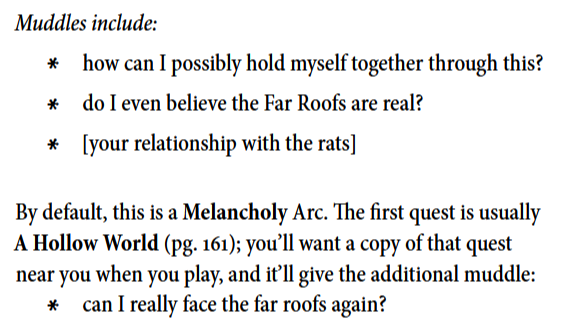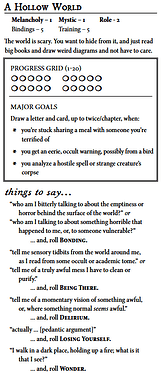I’ve been thinking about games like The Between. The characters in this game have implied character arcs through the main playbook moves (in conjunction with the flashbacks in my opinion) I know there are other games out there like Heart with character beats, but I’m not familiar enough with those to really talk about them.
Take the American, a runaway from a prominent family afflicted with a curse called the quickening. Through the flashback mechanic, there’s a set sequence of events. The American runs away, finds freedom in the West, gets the quickening, hurts someone, and then runs away again to London. The trajectory of the American is that they will probably burn through their metacurrency called Masks in order to prevent going “full werewolf”. At some point along that path, if they haven’t succumbed to the curse, they will be confronted by a ghost from their past, the Pinkerton hired to drag them back to the US.
All the playbooks are like this. They lay out a past in broad strokes, and then there’s an implied direction. This seems like there isn’t the most room for character creativity and expression. However, when I hear people talk about their actual experiences playing the game and their characters, they do have meaningful differences. So I know this is personal preference, but where do people stand on this? Do you like having guidance? Or does it feel like a straightjacket? Is that always the case, or does it depend on the game/genre? I’m not a player super often, so I’m not sure where I’m at.

